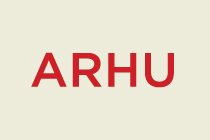By Jackie Zakrewsky
Hacker. Brainiac. Creative genius. Email savior.
These labels don’t faze software entrepreneur Dave Baggett ’92, founder of the Bethesda, Md.-based company Arcode – though they’re flying thick and fast in the flurry of reviews generated among tech bloggers about Arcode’s first product, Inky.
“So much for the slow organic growth path,” the 2009 Distinguished Alumnus of the College of Arts and Humanities noted in a recent email.
That ubiquitous technology, which Baggett simply calls “mail,” happens to be his current entrepreneurial target. Through a simple download at inky.com, Baggett aims to offer the world a better email experience, with “smart” features such as a unified inbox that consolidates a user’s email accounts and sorts messages by relevance.
Baggett is the first to admit Arcode wasn’t ready to unleash Inky on the world.
“We’re hardly out of [initial] alpha [testing] at this point and are focused primarily on fixing bugs,” he wrote in late December in a post on the Hacker News website.
But Inky’s unexpected debut in the tech community has found Baggett fielding questions about a host of issues, ranging from security and privacy concerns to requests for mobile versions of Inky. The magna cum laude graduate with a double major in linguistics and computer science offers straight-up answers, no matter how much “geek argot,” or tech lingo, is thrown his way.
If you question whether Inky is “wrapped with Chromium Embedded Framework (CEF), with web page JavaScript calling native Python scripts,” Baggett has a simple answer that doesn’t give away the company store: “Yes, it embeds Python and uses CEF. But there’s a lot of other native code running there as well.”
For the past two decades, Baggett’s programming acumen and entrepreneurial spirit have served him well. As he wrote on Hacker News, “I'm a hacker who (long ago) co-wrote Crash Bandicoot (1&2) and co-founded ITA Software, which was sold to Google in 2010.”
That track record led to an extensive overview of Inky in the influential online media hub known as Tech Crunch and prompted one blogger to write, “I’ll try Inky just because of your credentials.”
Meanwhile, the hard work of getting Inky right continues. In an interview at Arcode last year, Baggett noted that making “this transition from the dumb mail client to a smart one entails solving a lot of hard [technical] problems”—to the extent that “larger companies with more resources will not easily clone what you do.”
He also recognized that getting the product right wasn’t the only hurdle he faced in creating Inky.
“The biggest challenge with consumers is you have no idea what they’re going to like,” he said. “It’s worth pointing out that you have to do everything right and then get somewhat lucky to have that happen.”
You can try Inky for free at http://inky.com.






